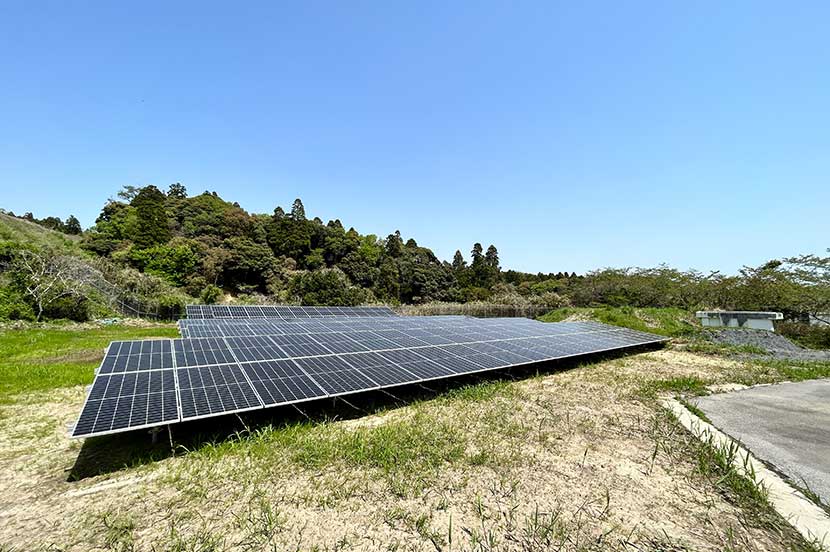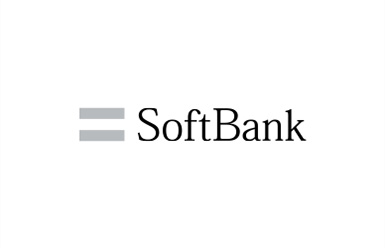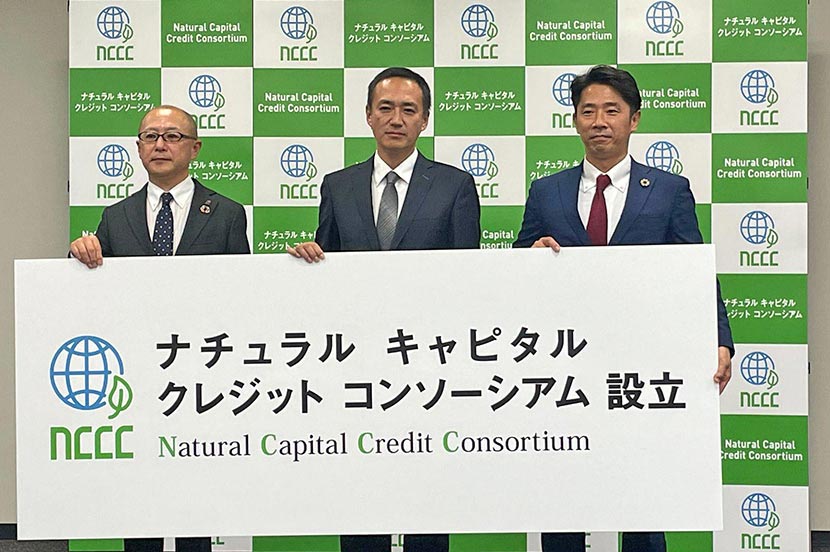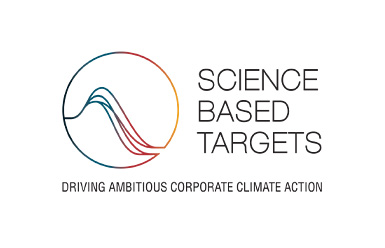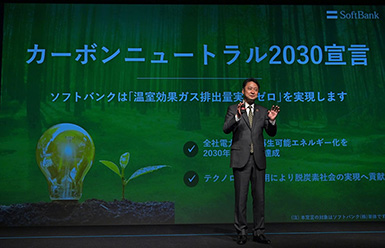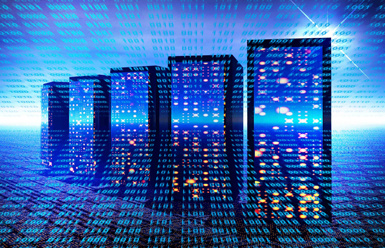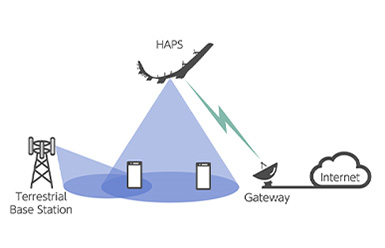

Promoting “Net Zero”
throughout the supply chain
In addition to its existing “Carbon Neutral 2030” declaration, which aims to reduce GHG emissions (“Scope 1” and “Scope 2”) from business processes and energy consumption to zero by 2030, SoftBank will work to remove supply chain emissions (“Scope 3”), which includes GHG emissions generated by business partners, in our group companies, by 2050.

Efforts toward Net Zero
Convert 100% electricity use to
renewable energy sources
by 2030
We are actively working towards the goal of converting 100% electricity use in our business operations to renewable energy sources by FY2030. Additionally, we aim to source more than 50%*1 of this energy from renewable energy with additionality*2 as part of our commitment to reducing greenhouse gas emissions.


[Notes]
- *1 Total for SoftBank Corp. and Wireless City Planning, Inc.
- *2 New procurement from renewable energy generation (wind, solar, etc.)
Long-term procurement contracts
for
renewable energy with additionality
By procuring new renewable energy sources, we aim to procure all of the electricity needed for our telecommunications business from renewable energy generation in the future.
By entering into long-term renewable energy procurement contracts, we will reduce our greenhouse gas emissions by making more than 50% of our own electricity use from renewable energy sources with additionality by FY2030, thereby contributing to achieving our carbon neutrality and realizing a decarbonized society. Additionally, these long-term procurement contracts will support the transition to a business structure less vulnerable to fluctuations in electricity costs.
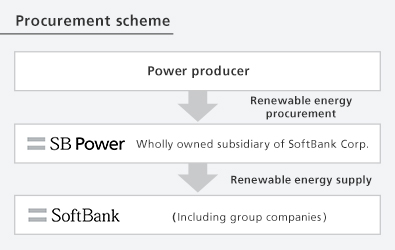

Shift to Renewable Energy for Power Used at Base Stations
SoftBank Corp.'s main business is the mobile communications business. The annual greenhouse gas emissions from our business activities total approximately 680,000 tons CO2 equivalent (FY2019 results), more than half of which is attributable to power use at base stations across Japan. Our total annual greenhouse (GHG) gas emissions are equivalent to those of approximately 250,000 ordinary households. In order to reduce GHG emissions, we have decided to switch to electricity from renewable energy supplied by SB Power.* In FY2022, 72.1% of base station power came from renewable energy, and we aim to increase this to 80% or more in FY2023.
[Note]
- * Electricity supplied from effectively 100% renewable energy, with zero net CO2 emissions, achieved by combining non-fossil certificates designated as renewable energy.
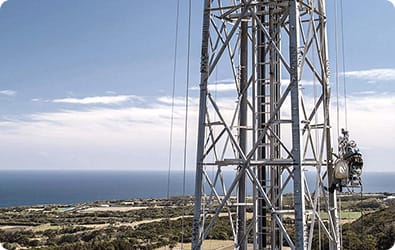

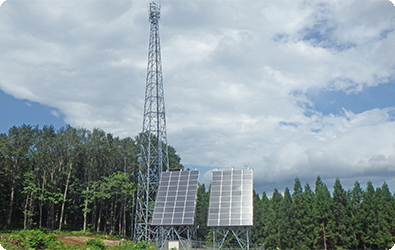

Energy-saving measures utilizing cutting-edge technologies
Power efficiency utilizing
AI, IoT, etc.
It is said that the impact on the global environment can be predicted by utilizing AI, IoT, big data, and other cutting-edge technologies to analyze the massive amount of environmental data through AI learning features. In order to become able to implement various countermeasures based on those predictions, the world's attention is focused on the application of cutting-edge technologies to environmental problems.
We are striving to maximally utilize cutting-edge technologies and synergies between group companies to achieve power efficiency in our facilities and equipment and implement measures to reduce the environmental load.

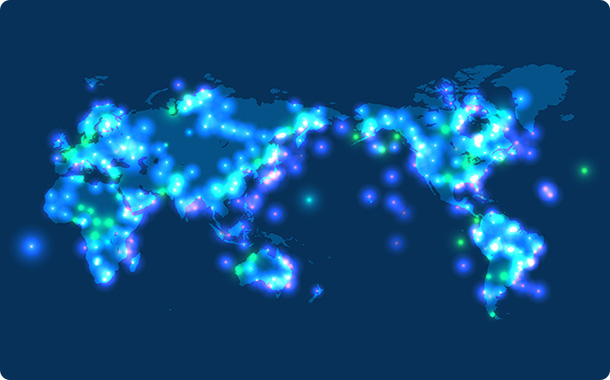
Reducing the environmental load through the development of next-generation batteries
We are striving to reduce the environmental load through research and development aimed at the development and practical application of next-generation batteries. Power consumption is increasing through the evolution of devices, which is leading to an increase in CO2 emissions. Increasing the capacity and energy density of batteries equipped in devices can enhance the performance and efficiency of devices and equipment and reduce the load on the environment.
Moreover, the “SoftBank Next-generation Battery Lab” was established in June 2021. In October 2021, in collaboration with Empower Greentech Inc. of the U.S., we succeeded in demonstrating a lightweight, high-capacity, high mass energy density lithium metal battery whose mass energy density is more than twice that of conventional batteries (520 Wh/kg class).
By encouraging research development and early commercialization, we aim to serve as a platform to promote the development of next-generation batteries.
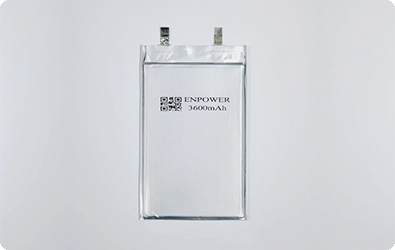

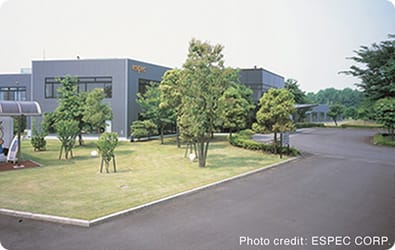

Realizing a communications infrastructure
with a low environmental load
We built the “HAPS (High Altitude Platform Station)” system, which provides a communications network from the sky, and developed an unmanned aircraft called the “Sunglider” that can continue to fly in the stratosphere. SoftBank aims to realize infrastructure with a low environmental load by providing stable flight and communication services through the development of solar power generation and storage technologies.
High Altitude Platform Station “HAPS”

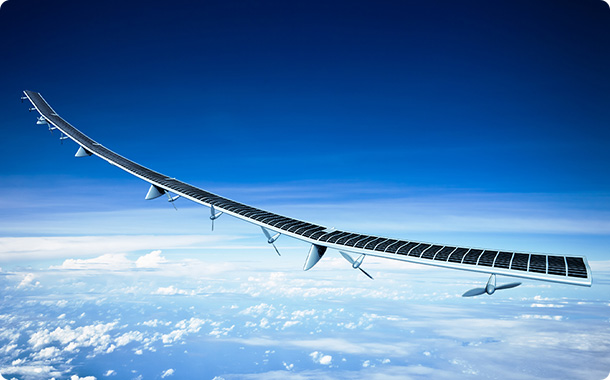
Other initiatives
Initiatives Related to
Scope 3 Reduction
As part of our efforts to reduce Scope 3 emissions, we are also considering measures such as offsetting credits, permanent carbon removal, forest carbon sequestration, and oceanic carbon uptake in cases where complete elimination of emissions is not achievable. We have endorsed the establishment objectives of the CO2 Capture, Utilization, and Storage (CCUS) Consortium, which was created by the National Institute of Advanced Industrial Science and Technology to conduct research and development on CO2 capture, utilization, and storage technologies. Our participation aims to contribute to the overall improvement of industry-wide technologies.
Additionally, we have joined as an initial member of the Natural Capital Credit Consortium (NCCC) and aim to promote forest conservation by contributing to the creation of carbon credits through the utilization of IT.
As part of the effort to reduce overall CO2 emissions of society, we have launched the “Future and Coral Project” in collaboration with Okinawa Onna Village, which actively promotes coral planting and environmental conservation, along with numerous companies and organizations. Through the conservation activities of coral reefs, we contribute to the promotion of CO2 absorption in the oceans by restoring marine ecosystems.
Furthermore, our group company, SB Power Corporation, offers a household electricity plan called “Shizen Denki”, which has zero CO2 emissions. For each contract, SB Power Corporation contributes 50 yen per month as an activity support fund, providing support for forest conservation activities.
Additionally, we have started calculating the carbon footprint for some of our products, and we plan to expand this assessment to cover more products in the future.
Topics
Environmental data
We collect and publicize data on energy usage and greenhouse gas emissions in the appropriate manner.
Resource usage /Greenhouse gas emissions
Our greenhouse
Gas Emission Reduction Targets
Certified by the
Science Based Targets
initiative
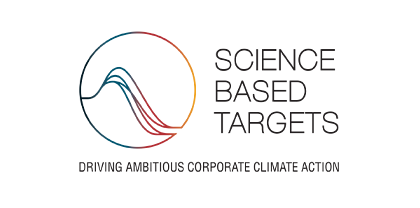

Material issue for leading response
to climate change
Contributing to
the Global Environment
with the Power of Technology
-
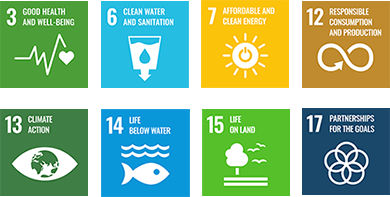

Contribute to mitigating climate change, promoting a circular economy and the adoption of renewable energy by utilizing cutting-edge technologies to pass on a sustainable global environment to the next generation.
Contributing to the Global Environment with the Power of Technology

